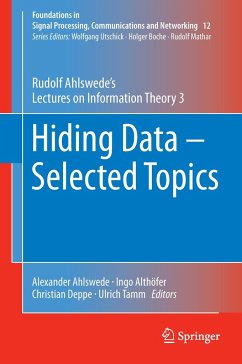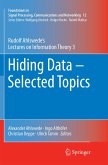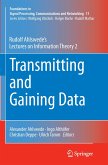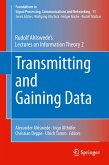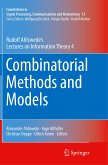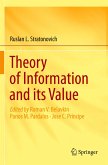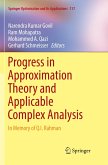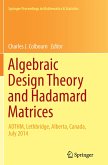Devoted to information security, this volume begins with a short course on cryptography, mainly basedon lectures given by Rudolf Ahlswede at the University of Bielefeld in the mid1990s. It was the second of his cycle of lectures on information theory whichopened with an introductory course on basic coding theorems, as covered inVolume 1 of this series. In this third volume, Shannon's historical work onsecrecy systems is detailed, followed by an introduction to aninformation-theoretic model of wiretap channels, and such important concepts ashomophonic coding and authentication. Once the theoretical arguments have beenpresented, comprehensive technical details of AES are given. Furthermore, ashort introduction to the history of public-key cryptology, RSA and El Gamalcryptosystems is provided, followed by a look at the basic theory of ellipticcurves, and algorithms for efficient addition in elliptic curves. Lastly, theimportant topic of "oblivious transfer" is discussed, which is stronglyconnected to the privacy problem in communication. Today, the importance ofthis problem is rapidly increasing, and further research and practical realizationsare greatly anticipated.
This is the third of several volumes serving as thecollected documentation of Rudolf Ahlswede's lectures on information theory.Each volume includes comments from an invited well-known expert. In thesupplement to the present volume, Rüdiger Reischuk contributes his insights.
Classicalinformation processing concerns the main tasks of gaining knowledge and thestorage, transmission and hiding of data. The first task is the prime goal ofStatistics. For transmission and hiding data, Shannon developed an impressivemathematical theory called Information Theory, which he based on probabilisticmodels. The theory largely involves the concept of codes with small errorprobabilities in spite of noise in the transmission, which is modeled bychannels. The lectures presentedin this workare suitable for graduatestudents in Mathematics, and also for those working in Theoretical ComputerScience, Physics, and Electrical Engineering with a background in basicMathematics. The lectures can be used as the basis for courses or to supplementcourses in many ways. Ph.D. students will also find research problems, oftenwith conjectures, that offer potential subjects for a thesis. More advancedresearchers may find questions which form the basis of entire researchprograms.
This is the third of several volumes serving as thecollected documentation of Rudolf Ahlswede's lectures on information theory.Each volume includes comments from an invited well-known expert. In thesupplement to the present volume, Rüdiger Reischuk contributes his insights.
Classicalinformation processing concerns the main tasks of gaining knowledge and thestorage, transmission and hiding of data. The first task is the prime goal ofStatistics. For transmission and hiding data, Shannon developed an impressivemathematical theory called Information Theory, which he based on probabilisticmodels. The theory largely involves the concept of codes with small errorprobabilities in spite of noise in the transmission, which is modeled bychannels. The lectures presentedin this workare suitable for graduatestudents in Mathematics, and also for those working in Theoretical ComputerScience, Physics, and Electrical Engineering with a background in basicMathematics. The lectures can be used as the basis for courses or to supplementcourses in many ways. Ph.D. students will also find research problems, oftenwith conjectures, that offer potential subjects for a thesis. More advancedresearchers may find questions which form the basis of entire researchprograms.

